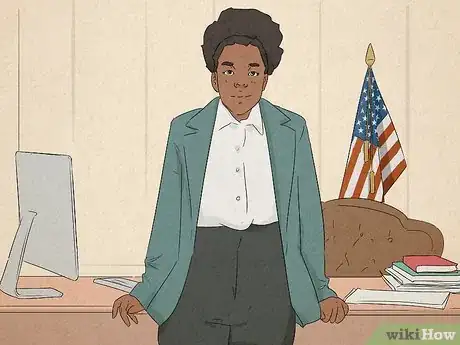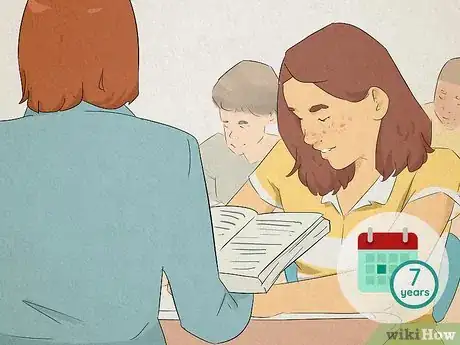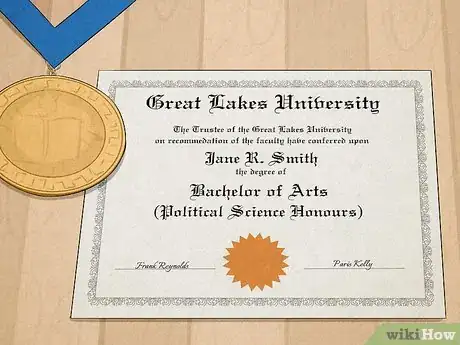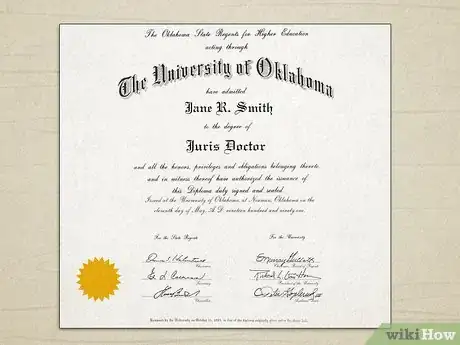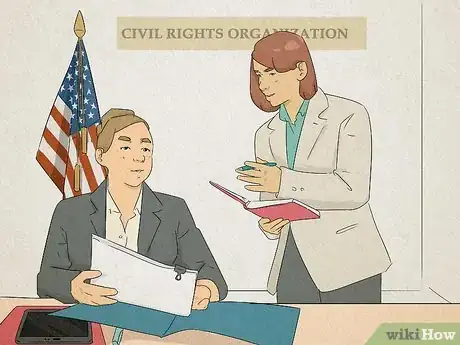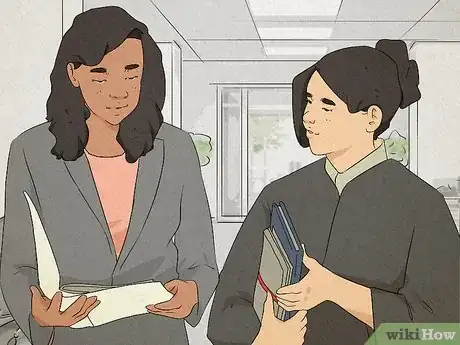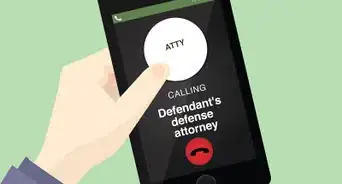This article was written by Jennifer Mueller, JD. Jennifer Mueller is an in-house legal expert at wikiHow. Jennifer reviews, fact-checks, and evaluates wikiHow's legal content to ensure thoroughness and accuracy. She received her JD from Indiana University Maurer School of Law in 2006.
There are 7 references cited in this article, which can be found at the bottom of the page.
This article has been viewed 21,646 times.
Civil rights attorneys focus on countering discrimination against individuals or groups. If you want to be a civil rights lawyer, you should be passionate about civil rights issues and really want to dedicate your life to defending people against discrimination and civil rights infringement. The process for becoming a civil rights attorney is similar to becoming any other type of lawyer, but there are things you can do to set yourself up for success in the field. We’ve put together answers to common questions you might have about becoming a civil rights attorney.
Steps
What degree do you need to be a civil rights lawyer?
-
1A bachelor’s degree from any discipline. Law schools accept applicants with undergraduate degrees in any field. However, certain subjects like political science, history, criminal justice, and philosophy can make you more prepared for law school.[3]
- Choose courses in political science and history that cover civil rights issues to help you prepare for your future as a civil rights lawyer.
- Courses that teach you problem solving, critical thinking, writing/editing, oral communication, research, and organization/management can also help prepare you for a career in law.[4]
-
2A Juris Doctor Law degree. This is the degree that you earn after successfully completing a law school program. After you earn your J.D. Law degree, you can take the BAR exam, which you must pass to become a practicing attorney.[5]
- While in law school, take courses in constitutional law, civil rights litigation, employment discrimination, race and the law, human rights law, education law, family law, and disability law to help prepare you for a career as civil rights attorney.
- Joining legal clinics, participating in MOOT courts, and applying for internships with law firms or civil rights organizations while you’re in law school are great ways to gain hands-on experience before you graduate.[6]
Where do civil rights attorneys work?
-
1Non-profit civil rights organizations. After you finish law school and pass the BAR exam, one option is to search for openings at local, national, or international civil rights nonprofits. Check the websites of various organizations for job openings for civil rights attorneys or reach out to different nonprofits and let them know you’re interested in working for them.[11]
- Some top non-profit civil rights organizations in the U.S. include the American Association of People with Disabilities (AAPD), the American Civil Liberties Union (ACLU), the Anti-Defamation League (ADL), the National Association for the Advancement of Colored People (NAACP), the National Gay and Lesbian Task Force (NGLTF), the National Organization for Women (NOW), and the Southern Poverty Law Center (SPLC).
- Amnesty International is one of the most well-known international civil rights nonprofits.
-
2Government agencies. There are various government agencies that are dedicated to civil rights. If you think you might like working for the government, research job openings on their websites and apply if you see any for civil rights attorney positions.[12]
- For example, in the U.S. government there are federal offices of civil rights in many departments including education, agriculture, justice, commerce, and homeland security, to name a few.
- You can find a full list of U.S. federal agency civil rights offices here: https://www.justice.gov/crt/fcs/Agency-OCR-Offices
-
3Public interest law firms with civil rights practices. If you’re interested in working for a law firm in the private sector, look for firms that specialize in public interests including civil rights. The primary mission of these firms is to help underrepresented people and causes, rather than just to make money.[13]
- Though these types of firms are still for-profit law firms, the way they choose clients is more selective and they often offer flexible payment options and take on pro-bono cases.
References
- ↑ https://www.lawyeredu.org/civil-rights-attorney.html
- ↑ https://www.humanrightscareers.com/magazine/how-to-become-a-human-rights-lawyer/
- ↑ https://www.lawyeredu.org/how-long-is-law-school.html
- ↑ https://www.americanbar.org/groups/legal_education/resources/pre_law/
- ↑ https://www.lawyeredu.org/civil-rights-attorney.html
- ↑ https://www.humanrightscareers.com/magazine/how-to-become-a-human-rights-lawyer/
- ↑ https://www.usnews.com/education/best-graduate-schools/top-law-schools/articles/2019-07-03/how-to-choose-a-law-school-if-you-want-to-be-a-civil-rights-lawyer
- ↑ https://www.theedadvocate.org/2020-best-jd-programs-in-civil-rights-law/
- ↑ https://www.lawyeredu.org/civil-rights-attorney.html
- ↑ https://www.lawyeredu.org/civil-rights-attorney.html
- ↑ https://www.law.georgetown.edu/your-life-career/career-exploration-professional-development/for-jd-students/explore-legal-careers/practice-areas/civil-rightscivil-liberties/
- ↑ https://www.law.georgetown.edu/your-life-career/career-exploration-professional-development/for-jd-students/explore-legal-careers/practice-areas/civil-rightscivil-liberties/
- ↑ https://www.law.georgetown.edu/your-life-career/career-exploration-professional-development/for-jd-students/explore-legal-careers/practice-areas/civil-rightscivil-liberties/
